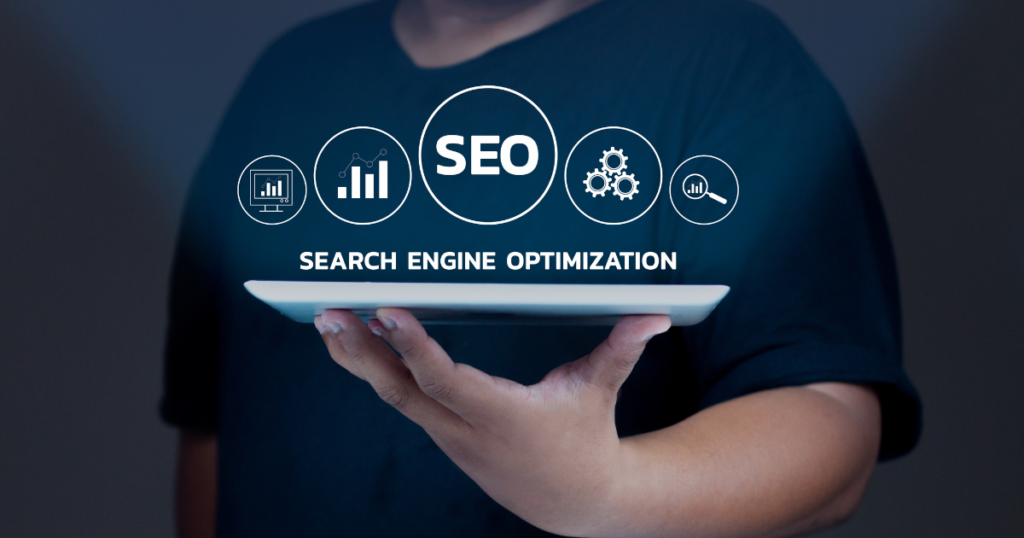What is an ecommerce app?
An ecommerce app, sometimes called a mobile commerce app, is a software application specifically designed for browsing and purchasing products on mobile devices. It allows businesses to showcase their products and services, manage inventory, track sales, and process payments through a secure online platform.
Customers can browse through products, add them to their cart, and make purchases from the convenience of their mobile devices. Some popular ecommerce apps include Amazon, eBay, and Alibaba.
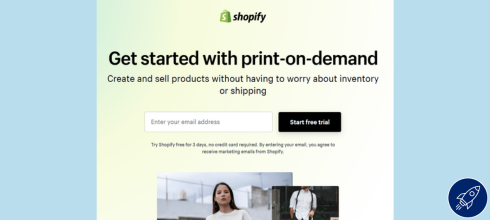
Think of it as your favorite online store condensed into a convenient and readily accessible app on your phone or tablet. Here’s what they typically offer:
Features:
- Product browsing: Browse product catalogs with detailed descriptions, images, and reviews.
- Search and filtering: Easily find specific items using search bars and filters based on category, price, brand, etc.
- Shopping cart and checkout: Add items to your cart, manage quantities, and securely complete purchases using saved payment methods or digital wallets.
- Account management: Track your orders, update your profile information, and manage wish lists and saved items.
- Push notifications: Stay informed about promotions, order updates, and exclusive deals through app notifications.
- Additional features: Some apps offer features like product recommendations, barcode scanning for in-store price comparisons, loyalty programs, and location-based services for nearby stores or offers.
Benefits for consumers:
- Convenience: Shop anytime, anywhere from your mobile device.
- Faster checkout: Save time with saved payment methods and streamlined checkout processes.
- Personalized experience: Some apps offer recommendations and promotions tailored to your preferences.
- Enhanced loyalty programs: Easily access and manage loyalty points and rewards.
- Exclusive deals and promotions: Many apps offer app-exclusive discounts and promotions.
Benefits for businesses:
- Increased sales and reach: Mobile users are often on the go and receptive to impulse purchases.
- Direct customer engagement: Apps offer a platform for personalized communication and promotions.
- Improved brand loyalty: Positive app experiences can foster stronger customer relationships.
- Valuable data and insights: App analytics provide valuable data on user behavior and preferences.
- Cost-effective marketing: Targeted app notifications and promotions can be a cost-efficient way to reach customers.
Overall, e-commerce apps are changing the way people shop, offering convenience, personalization, and exclusive benefits for both consumers and businesses. So next time you’re looking to make a purchase, consider checking out the retailer’s app – you might be surprised at the ease and benefits it offers!
13 best Shopify ecommerce apps
If you’re looking to set up an ecommerce store on Shopify, you may be overwhelmed by the number of apps available. To help you make the most informed decision, we’ve reviewed 13 top Shopify ecommerce apps that can help you increase sales, automate processes, and improve customer experience.
1. Instafeed
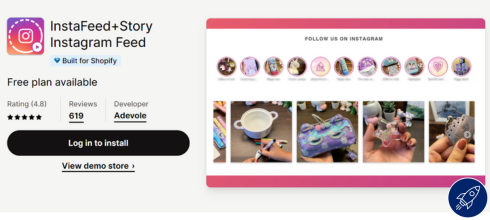
Instafeed is a Shopify app that allows you to integrate your Instagram feed directly into your online store. With Instafeed, you can display user-generated content, showcase your products in action, and add social proof to your store. The app is highly customizable, with options to filter by hashtags and usernames, adjust layout and styling, and add call-to-action buttons. While there is a limited free plan, advanced features like shoppable posts and Instagram analytics require a paid plan.
Pros:
- Seamlessly integrate Instagram feed into your store.
- Customizable layouts and filtering options.
- Boosts social proof and user engagement.
Cons:
- Limited free plan functionality.
- Can be resource-intensive for larger feeds.
- Advanced features require paid plans.
2. Shopify Flow
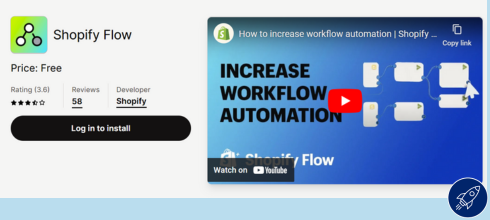
Shopify Flow is an ecommerce automation platform that helps merchants save time and effort by automating repetitive tasks. It allows merchants to create workflows that can automate tasks such as inventory management, order processing, customer segmentation, and more. By using Shopify Flow, merchants can streamline their ecommerce operations, reduce errors, and focus on growing their business.
Pros:
- Powerful automation tool for workflows and tasks.
- Connects with various apps and services.
- Improves efficiency and reduces manual work.
Cons:
- Learning curve for complex workflows.
- Limited free plan actions.
- Higher tiers can get expensive for advanced needs.
3. Pirate Ship
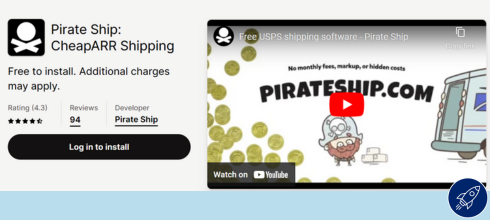
A pirate ship is a type of naval vessel that was used by pirates for raiding and plundering other ships. They were typically smaller and faster than traditional naval ships and often armed with cannons and other weapons. Pirate ships were notorious for their Jolly Roger flags, which featured skull and crossbones symbols, and for their ruthless captains, who were known for their brutal tactics. Despite their reputation, pirate ships played an important role in the history of naval warfare, and many of their techniques and strategies are still studied and analyzed today.
Pros:
- Discounted shipping rates for USPS, UPS, and FedEx.
- Easy-to-use interface and batch shipping options.
- Saves money on shipping costs.
Cons:
- Not available for all shipping destinations.
- Limited insurance options compared to major carriers.
- Requires upfront payment for shipping labels.
4. SEO: Image Optimizer Page Speed
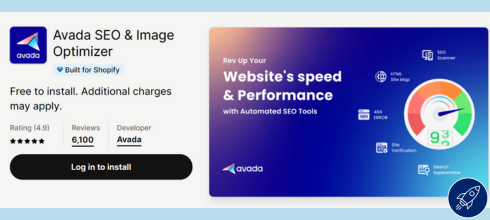
SEO (Search Engine Optimization) is the practice of optimizing your website to improve its ranking and visibility on search engines. Image optimization is an important aspect of SEO, as images can significantly slow down your website’s loading speed.
By optimizing your images, you can improve your website’s page speed, which in turn can positively impact your search engine rankings. Therefore, SEO: Image Optimizer Page Speed refers to the process of optimizing website images to improve page speed and ultimately, SEO.
Pros:
- Optimizes images for faster loading times and SEO.
- Compresses images without compromising quality.
- Improved website performance and search ranking.
Cons:
- Free plan limited features and image uploads.
- Manual image optimization for paid plans.
- Advanced features require higher tiers.
5. QuickBooks Online Global
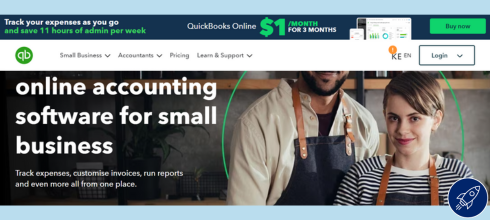
QuickBooks Online Global is a cloud-based accounting software that allows businesses to manage their finances from anywhere in the world. With features such as invoicing, expense tracking, and financial reporting, QuickBooks Online Global helps businesses streamline their accounting processes and make informed financial decisions. It also supports multiple currencies and languages, making it a great tool for businesses operating globally.
Pros:
- Cloud-based accounting software for international businesses.
- Multi-currency support and tax compliance tools.
- Streamlines financial management and reporting.
Cons:
- Complex setup for unfamiliar users.
- Limited customization options compared to desktop versions.
- Higher pricing for advanced features and multiple users.
6. Linkpop
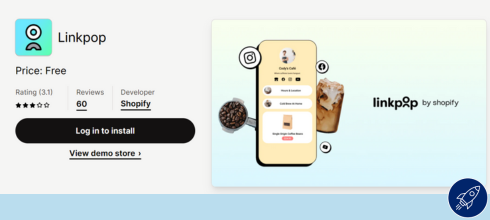
However, there are several tools and software available that can help you analyze the link popularity of your website or a competitor’s website. These tools can provide insights into the number of backlinks, referring domains, anchor text, and other metrics that can help you improve your website’s search engine rankings and online visibility.
Pros:
- Create engaging bio links for Instagram and other platforms.
- Add multiple links, products, and calls to action.
- Drive traffic and sales from your social media profiles.
Cons:
- Limited design customization options.
- Free plan restricts features and analytics.
- Paid plans can be expensive for high-traffic accounts.
7. Klarna On-Site Messaging
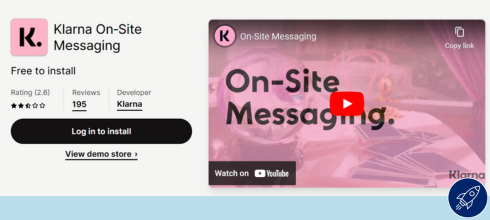
Klarna On-Site Messaging is a customer communication tool that enables online merchants to communicate with their customers in real time during the shopping journey.
With Klarna On-Site Messaging, merchants can provide personalized support to their customers, answer their queries, and guide them through the checkout process. This tool helps merchants to increase customer satisfaction, reduce cart abandonment rates, and ultimately drive sales.
Pros:
- Offer “buy now, pay later” financing directly in your store.
- Increase conversion rates and average order value.
- Seamless integration with Klarna checkout process.
Cons:
- Klarna approval process required for merchants.
- Potential for increased chargebacks and fraud.
- May not be suitable for all product categories or target audiences.
8. Spocket – US & EU Dropshipping
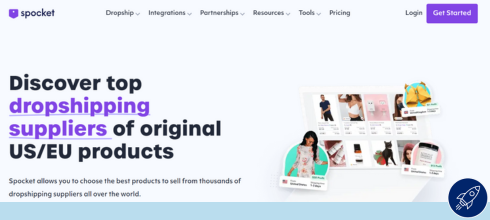
Spocket is an online platform that connects small business owners with suppliers and manufacturers that offer dropshipping services. It’s a great option for entrepreneurs who want to sell products online without having to handle inventory and shipping themselves.
With Spocket, you can choose from a variety of products from US and EU-based suppliers, ensuring fast shipping times and high-quality products.
Pros:
- Wide variety of dropshipping products from US and EU suppliers.
- No upfront inventory costs or order fulfillment hassle.
- Easy integration with Shopify store.
Cons:
- Lower profit margins compared to traditional wholesale.
- Limited control over product quality and branding.
- Shipping times can be longer, especially for international orders.
9. Printify: Print on Demand
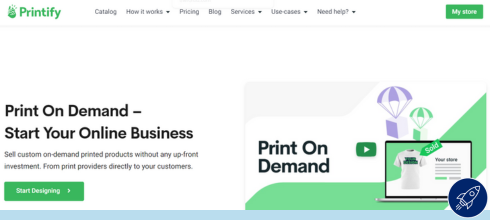
Printify is a print-on-demand drop-shipping platform that allows entrepreneurs to create and sell their custom products. With Printify, you can choose from a wide range of products including t-shirts, hats, phone cases, and more, and then add your designs to create unique items to sell online.
The platform handles the printing, packaging, and shipping, so you can focus on designing and marketing your products. It’s a great way to start a business without the need for inventory or upfront costs.
Pros:
- Offer custom-printed products like t-shirts, mugs, and phone cases.
- No minimum order quantities or inventory management.
- Wide range of printing and product options.
Cons:
- Higher product costs compared to bulk printing.
- Limited product customization options for some items.
- Shipping times can be longer depending on the fulfillment location.
10. Mailchimp: Email Marketing
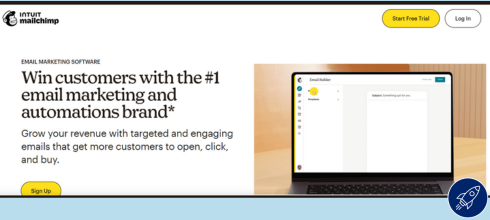
Mailchimp is an email marketing platform that allows businesses to create, send, and track email campaigns. It offers a variety of tools to help businesses grow their audience, engage with customers, and increase sales.
With Mailchimp, businesses can design and send beautiful emails, automate their marketing campaigns, and analyze their results to improve their email marketing strategy. It is a popular choice among small and medium-sized businesses due to its user-friendly interface and affordable pricing plans.
Pros:
- User-friendly email marketing platform.
- Create beautiful email campaigns with a drag-and-drop editor.
- Free plan for up to 2,000 contacts and 12,000 sends per month.
Cons:
- Limited features and automation in the free plan.
- Higher tiers can get expensive for large subscriber lists.
- Lacks advanced segmentation and personalization options compared to some competitors.
11. Shoppable Instagram & UGC
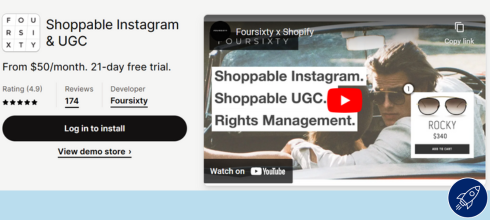
Shoppable Instagram refers to the feature on the Instagram platform that allows businesses to tag products in their posts and stories, which would then enable users to directly purchase those products from within the Instagram app.
UGC stands for User Generated Content, which is any type of content created by users of a brand, like photos, videos, or reviews. When businesses share UGC on their Instagram profiles, it helps build social proof and trust among their followers, which in turn can drive more sales.
Pros:
- Turn user-generated content into shoppable posts.
- Tag products directly on Instagram photos and videos.
- Increase engagement and drive sales from social media.
Cons:
- Requires manual product tagging for free plan.
- Limited analytics and reporting features.
- Paid plans can be expensive for high-volume stores.
12. Stage TEN
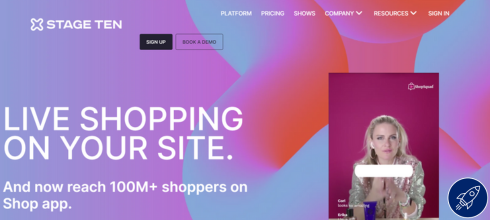
Stage TEN, in the context of your list, refers to a live-streaming platform specifically designed for e-commerce. It helps Shopify stores and other businesses host professional, interactive live shopping experiences across various platforms like YouTube, Facebook, and their websites.
Here’s what Stage TEN offers:
Features:
- Complete live streaming suite: Manage live broadcasts, add product displays, integrate chat moderation, and more.
- Interactive shopping: Feature products with real-time pricing, enable viewers to ask questions and interact, and facilitate instant purchases.
- Multi-streaming: Broadcast your live show across multiple social media platforms simultaneously.
- Customizable branding: Maintain brand consistency with personalized layouts, overlays, and graphics.
- Analytics and reporting: Track performance metrics like viewer engagement, sales conversions, and product popularity.
Benefits:
- Increase sales and engagement: Live video demonstrations and interaction can significantly boost conversion rates and customer engagement.
- Personalize the shopping experience: Create a more interactive and dynamic shopping experience compared to static product pages.
- Reach wider audiences: Broadcast across various platforms to reach a broader customer base.
- Build brand awareness and loyalty: Live interactions foster stronger connections and brand loyalty.
- Gain valuable insights: Analytics data helps optimize future live sessions and marketing strategies.
Pros:
- Advanced visual merchandising and page builder for Shopify.
- Create stunning product pages and layouts.
- No coding is required drag-and-drop interface.
Cons:
- Complex for beginners compared to basic theme editors.
- Free plan with limited features and templates.
- Higher tiers can be expensive for small stores.
13. Shopify Marketplace Connect
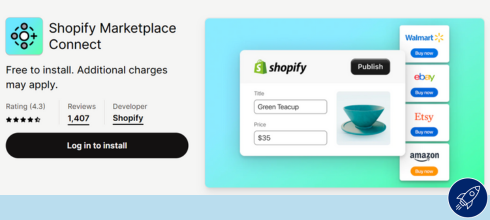
Shopify Marketplace Connect, formerly known as Codisto, is a powerful app for Shopify stores looking to expand their reach and sell on multiple online marketplaces. Think of it as a one-stop shop for multi-channel selling within your Shopify platform.
Here’s what it offers:
Connect to Major Marketplaces
- Integrate your Shopify product catalog with leading marketplaces like Amazon (US only), Walmart (US only), eBay, and Etsy.
- Sell across various regions and in local currencies with built-in currency conversion.
Streamlined Management
- Sync product listings, inventory, and orders across all connected marketplaces from within your Shopify admin.
- Manage pricing, fulfillment options, and promotions for each marketplace independently.
- Automate order fulfillment and receive real-time updates on sales and inventory.
Enhanced Features
- Utilize built-in performance metrics to track sales and analyze results across different marketplaces.
- Leverage rule-based automation to manage pricing, inventory, and fulfillment based on your preferences.
- Access dedicated support from Shopify Marketplace Connect specialists.
Benefits for Shopify Stores
- Increased Reach: Expand your customer base by tapping into the massive audience of established marketplaces.
- Simplified Management: Manage all your multi-channel selling activities from a single platform.
- Improved Efficiency: Automate tasks and reduce manual workload associated with multi-channel selling.
- Data-Driven Decisions: Gain valuable insights into performance across different marketplaces.
Overall, Shopify Marketplace Connect is a valuable tool for any Shopify store looking to scale their business and reach new customers through popular online marketplaces.
Ecommerce apps FAQ
What are some popular ecommerce apps?
Some popular ecommerce apps include Amazon, eBay, and Alibaba.
What are the benefits of using ecommerce apps for consumers?
Benefits for consumers include convenience, faster checkout, personalized experiences, enhanced loyalty programs, and exclusive deals and promotions.
What are the benefits of using ecommerce apps for businesses?
Benefits for businesses include increased sales and reach, direct customer engagement, improved brand loyalty, valuable data and insights, and cost-effective marketing.
What is Shopify?
Shopify is an ecommerce platform that allows businesses to create online stores and sell their products online.
What are some popular Shopify ecommerce apps?
Some popular Shopify ecommerce apps include Instafeed, Shopify Flow, Pirate Ship, and many others.

